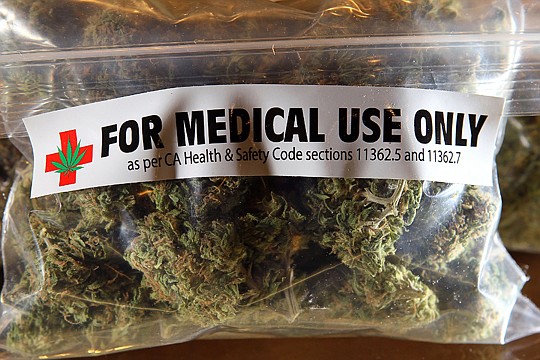
By Carole Hawkins, [email protected]
Medical marijuana is on the ballot in Florida this November.
If it passes, what will that mean for apartment owners who have “no smoking” and “no drug use” policies?
Even in states that already have passed such laws, the answer is not clear.
State and federal fair housing laws say people with disabilities must be allowed reasonable accommodation.
On the other hand, legal decisions haven’t always seen pot smoking as a valid accommodation.
Also, marijuana is still illegal under federal law, meaning landlords who allow pot have legal exposure for knowingly violating drug laws.
Sally Suslak manages 400 rental properties through her company, Traditions Realty, and owns 18 rental properties.
“I think that allowing people to have medical marijuana treatments is a very humane thing to do,” she said. “But there really needs to be tight regulations to protect everybody.”
Amendment 2 would allow medical use of marijuana for people with debilitating diseases, as determined by a licensed Florida doctor.
One issue Suslak sees is whether that would require landlords to allow smoking marijuana. Marijuana may also be ingested with food.
Smoke permeates everything with its odor –– carpets, drapes, clothes and fibers. Many landlords and owners of apartment complexes do not allow smoking of any kind on their premises for that reason.
“There are not laws in Florida right now that make smokers a protected class,” Suslak said. “But, the amendment could become another step in the process for marijuana smokers. If property owners had to make accommodations for people to be able to smoke, it would be kind of a nightmare.”
Another issue would be recreational drug users, Suslak said. If one tenant in a complex smoked marijuana for medical reasons, it could give camouflage to others who were smoking it illegally.
“It could become a case of – I can go smoke my illegal marijuana at the same time they’re smoking theirs and nobody will know the difference,” she said.
Also, rentals are popular places to hide marijuana grow houses, Suslak said. That risks more property damage from mold and jerry-rigged electrical systems.
The Florida Apartment Association is waiting to see whether the amendment passes and if it does, what its impacts to the industry will be, said Josh Gold, executive vice president.
But in states where medical marijuana is legal, regulatory wrangling is underway.
Nancy Burke, vice president of government affairs for the Colorado Apartment Association, tells landlords it’s up to them whether to allow marijuana or not.
Smoke-free properties can remain smoke free, she said in an article that appeared in the summer edition of the Florida association’s magazine.
Because federal law makes marijuana illegal, landlords may enforce zero-drug tolerance policies in their crime-free lease addendums. They also can create an addendum that addresses marijuana specifically.
On the other hand, she said, a disabled tenant can file a fair housing complaint if a request to allow medical marijuana is denied. She advises adopting a marijuana policy that anticipates such requests, but is not specific on what it should say.
West Palm Beach attorney Ryan McCain, in another article in the same issue, showed how tricky the legal hairsplitting has been in other states.
In Washington, a tenant and medical marijuana patient lost a fair housing lawsuit because his apartment was federally subsidized and marijuana is illegal under federal law.
Michigan’s attorney general issued a legal opinion saying landlords who deny medical marijuana use aren’t violating fair housing laws because such a denial isn’t based on a person’s disability, but rather on their decision to treat their condition with marijuana.
But, Rhode Island enacted a statute saying landlords could not refuse to lease to a person who is a medical marijuana card holder.
“If Amendment 2 passes … the issue presents fertile ground for litigation,” McCain said. He said the Florida Legislature should create guidance to protect people who are clearly trying to comply with the law.